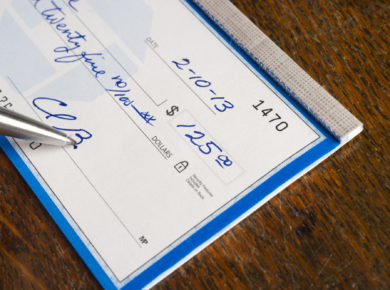Before you form any opinions about this article, let me quickly state that I am 100% in favor of saving for retirement. I’m passionate about people growing their wealth and squeezing every bit of joy out of life, and having money set aside for after you’ve exited the workforce is a big part of that. By whatever means possible, you should be trying to maximize your retirement savings.
Now that we’ve cleared that up, let’s talk about whether or not you should enroll in your company’s 401(k) program. I know that enrollment is easy, the employer match is tempting, and it feels like the obvious and smart thing to do. However, is it maybe a little too obvious? A little too easy? Is the employer-matching 401(k), dare I say, too good to be true? Let’s discuss.
Where’s Your Money Going?
To understand the pros and cons of this type of account, you have to understand what actually happens with your dollars. 401(k)s are often referred to as contribution accounts because you get to decide how much you contribute from your paycheck each month. Your employer is in charge of getting that money over to a third-party investor who allocates those funds on your behalf. While you can get your own hands dirty and direct which stocks and funds you invest in, I find that most workers prefer to let someone else handle this for them.
That’s about it. Most 401(k) programs have you deposit funds pre-tax so you won’t notice much difference on your paycheck. Taxes, of course, will be paid when you withdraw the money after retirement, but you don’t have to pay annual taxes on the gains. This is how you grow your retirement account enough to support yourself once you stop working. On paper, there’s no reason why you shouldn’t be tempted by the 401(k) program, especially if your employer offers a match.
What’s the Problem?
In the above section, I describe how a 401(k) plan works in theory. However, there’s a lot more to unpack when discussing why it works in practice. While these programs definitely exist to help individuals save for retirement, there are lot of other incentives for your employer and the people managing the accounts.
Fees
I don’t know about you, but I’ve never met an account manager who works for free. When you’re first getting sold on an employer-sponsored account, you’re only going to hear about tax-free this and employer-matched that. What you won’t discuss are the subversive fees that plan managers collect. In addition to the capital that gets redirected to the manager, there are usually separate charges associated with any mutual funds in your plan. You won’t see these figures when you’re looking at an account overview, but they absolutely add up.
Employer Match
I love free money as much as the next guy. However, I’m also aware that it’s sort of a fallacy. What does your employer get from matching your 401(k) contributions? For starters, even when you enroll in a matching plan, there’s no guarantee you’ll see that money. In most cases, you have to be with the same company for upwards of six years for the matched funds to become fully vested. In today’s business climate, staying with a company that long is closer to the exception than the rule.
It’s also important to make sure a 401(k) match doesn’t come at the expense of higher wages. If you could be earning more instead of having money put into an account you can’t touch until you’re 59.5, you might be able to make those dollars go farther by another means. An employer match is not inherently bad, and I readily admit that it serves some people well. Nevertheless, you shouldn’t just think of it as free money without investigating a little further.
Taxes
Tax-deferred contributions are nothing to scoff at… at least not at first. The problem is, taxes must be paid at some point. You’re either going to deal with taxes when you deposit the money or when you withdraw it, and you might not have any idea which is better. Since you don’t know what your tax rate will be by the time you retire, this is a hard question to answer. What’s most important is that you recognize paying taxes later doesn’t necessarily equate to paying less in taxes.
What’s the Alternative?
Did you think I’d talk about the problems with 401(k) programs and leave you without potential solutions? C’mon, I’m here to help!
The purpose of a 401(k) is to help you save money for retirement. There is nothing special about the money you will have saved. 401(k) or otherwise, you will still need United States currency in your later years in order to pay for things. So, what are some of the ways you can maximize your holdings outside of an employer sponsored account?
- IRAs
- Alternate Investments
- Savings Accounts
- Personal Stock Holdings
Any of these options could potentially serve as a better investment option. With a Roth IRA, you can pay taxes now and avoid them later. If you invest your money in real estate, you stand a very good chance of seeing the price of your property rise over the years; you might also use that property as a rental and earn even more income. If you’re like me and you don’t want to put all your retirement money into a limited number of mutual funds, you can purchase stocks and create your own diversified portfolio.
Many people make the most out of a 401(k) program and go on to enjoy happy, well-funded retirements. While I advise you to do whatever allows you to save the most and live your best life, I feel there are other, better ways to put your money to work. When you take charge of your investing and make your own, educated decisions, it becomes much easier to create the retirement you want.




